Situated in the heart of Krakow and along Poland’s longest river is an abandoned Soviet-era hotel. On the outside, covering the front façade of the concrete building – a remnant of 1980s communist architecture – is a huge lack-lustre Adidas billboard.
Inside, however, is a different story. For two days, the mostly vacant former hotel was transformed into a colourful space for the Bitspiration Festival, an annual tech conference bringing together entrepreneurs, investors and music industry professionals to learn, exchange ideas and mingle.
From bean bags and video games to 3D printers and energy drinks, the event had all the elements you’d expect from an archetypical tech conference in Europe. A quick glance at the speakers schedule, which saw name upon name riddled with unfamiliar ‘sz’ and ‘cz’ letter combinations, reminded me that I was, indeed, in Poland.
In March, a Bitspiration blog post titled ‘5 Reasons Krakow Will Top Global Startup Map’ (sic) prompted tech.eu’s Editor-in-Chief Robin Wauters to write an opinion piece on why boasting about your local startup scene with excessive hyperboles is futile and counter-productive.
Since tech.eu was part of a group of journalists invited to attend Bitspiration 2014 and Hub:raum Krakow WARP, an acceleration program for tech projects in Central and Eastern Europe, we decided to step into the Polish startup scene to make our own observations on the fledgling entrepreneurial community...
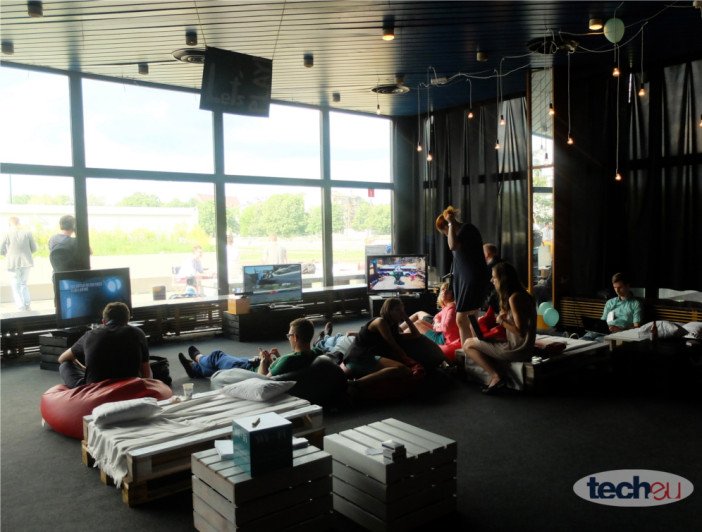
Poland: It’s come a long way
With a population of roughly 38 million people, Poland is commonly known for its highly skilled and inexpensive tech talent in the startup world.
Only a couple of weeks ago, a Polish team of programmers – brothers Tomasz Zurkowski and Piotr Zurkowski alongside Wojciech Jaskowski – beat out over 2,500 teams to become “the first-ever world coding champion” at Hello World Open in Helsinki. The inaugural event, organized by mobile game developer Supercell and creative tech company Reaktor, saw coders from across the world compete to create an artificial intelligence (AI) program to drive a virtual race car.
Even though our visit to Poland was limited to the country's second largest city, we were able to gain insight not only into Krakow, but the broader Polish startup community, including prevailing attitudes, perceptions and problems.
“It’s clear that the situation in Poland for business development is now totally different to how it was just after the end of communism. Back then it was a very poor country with very weak institutions. Since that time, several crucial things have changed, including the mentality of Polish people towards running businesses,” said British entrepreneur and angel investor Richard Lucas, a prominent proponent of Krakow’s startup scene who has been living in the city for over 20 years, in a recent interview with Cafébabel.
“Now young Polish entrepreneurs are more open to networking, and they are now accustomed to working in a multicultural, international area as well. They're aware that they are capable of being internationally competitive and they’re ready to achieve success in Poland and in any other country as well,” Lucas added.
Though many might think the that the startup scene is concentrated in the country’s capital city of Warsaw, in reality, it seems quite decentralized with growing tech clusters in Krakow, Poznan and Gdansk.
When asked whether much communication and collaboration is common among Polish tech hives, Tomasz Drosio – CFO of Zortrax, a 3D printer-maker based in Olsztyn – told us, interestingly enough, that they seem to be more “isolated” from each other.
Heavyweights setting sights on the country
The proliferation of startup events, communities and entrepreneurial initiatives across the country is shaping Poland into an interesting startup region to follow. And big companies, such as Google and Deutsche Telekom, are watching closely.
The search giant has already opened its Google for Entrepreneurs program in Krakow and announced earlier this month (on the 25th anniversary of Poland’s “first partially free democratic election” that led to the fall of the Iron Curtain) its plans on opening a Campus in Warsaw.
Considering that Google Campuses – which offer access to mentors and training in local startup communities – currently operate only in London and Tel Aviv, the decision to open one in Warsaw says a lot about how the search company perceives the potential of Poland and Central Eastern Europe.
Last April, Deutsche Telekom also made a move to get closer to this market by bringing its Hub:raum incubator and accelerator to Krakow. The aim? To support startups from Central and Eastern Europe by connecting teams to seed funding, co-working space, mentorship and access to Deutsche Telekom’s network.
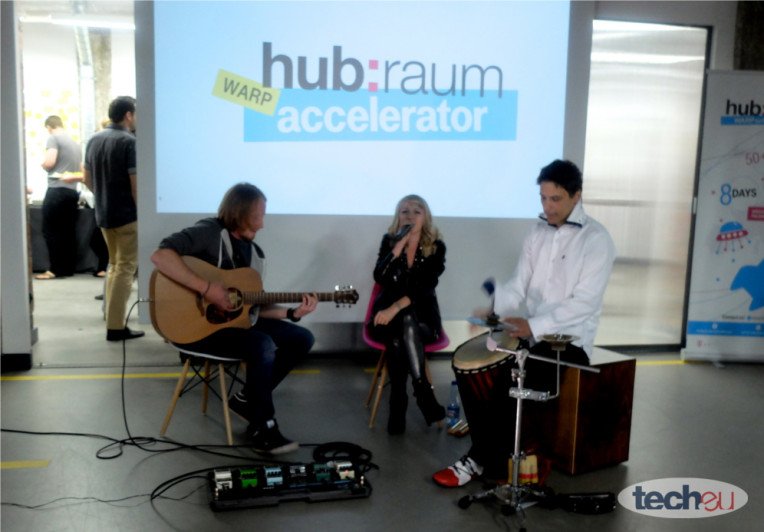
The latest cycle of Hub:raum Krakow’s WARP “turbo acceleration” program, which spans eight days, cumulated in a Demo Day following the Bitspiration festival in mid-June. The event saw ten teams from Poland, Czech Republic, Slovenia, Croatia, Romania, Montenegro and Macedonia present their ideas in front of a panel of experts, journalists and mentors.
Polish startup heroes
Base and Estimote. If you didn’t know these names before, you definitely would after being immersed in the Polish startup community for a couple of days. With these names popping up in many of the talks I attended at the Bitspiration Festival, I sensed that they were something of startup heroes in Krakow.
Founded by Uzi Shmilovici, Bart Kiszala and Pawel Niznik in 2009, Base offers a cross-platform CRM software. The startup, which has offices in Krakow and Palo Alto, recently raised a $15 million Series B round and claimed 3,500 customers along with revenue “in the millions”.
Then there’s Estimote, a startup founded by Jakub Krzych and Łukasz Kostka in 2012, which is building a “sensor-based analytics and engagement platform” for retail environments, airports and hospitals. The Y Combinator Alum and winner of TechCrunch Disrupt 2013 in San Francisco announced a $3.1 million seed round at the end of last year. Currently, the Estimote team is spread across Krakow, New York and San Francisco.
Almost every European startup ecosystem has its own poster child(ren) garnering international recognition and these two in particular, seem to be fuelling a healthy sense of pride and promise within the Polish startup community.
Also making tech world waves: SaaS design service UXPin – which has offices in Gydnia and Mountain View and also picked up $1.6 million in funding in February – and social learning platform Brainly – which claims to connect over 25 million unique users across the globe every month.
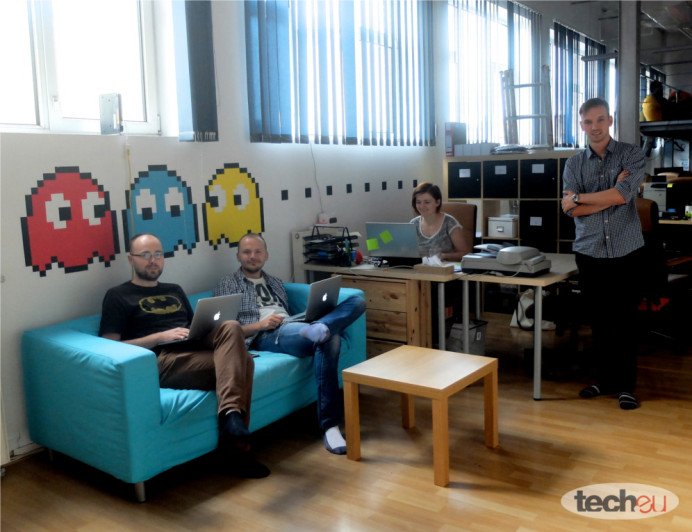
As for entrepreneurial or startup trends emerging across the country?
"Medicine, health and treatment, edutainment – those three fields are definitely growing and will be more and more popular," said Maciej Ryś, Managing Director of Przedszkolowo.pl, a platform (currently only in Polish) aimed to improve communication between pre-school/kindergarten teachers and parents/caregivers.
Falling into this realm is IntelClinic, a Warsaw-based startup developing a sleep monitoring mask aiming to help you "sleep less and more efficiently". Following IntelClinic's successful Kickstarter campaign, which reached its $100,000 goal in less than 24 hours, the startup won first place at LeWeb Paris 2013's startup competition.
IntelClinic CEO Kamil Adamczyk told us that the startup is currently working on further developing its mask as well as running clinical trials in the US.
One step at a time
There's a reason why many tech juggernauts, such as Google, IBM, Opera Software and Microsoft, have their R&D centres in Poland. It's no secret that starting up in a Polish city means access to a pool of affordable technical talent.
According to Krzysztof Parjaszewski, a Polish developer and co-founder of software/design agency SkyGate, a quality developer in Poland costs about 30,000 euros/year compared to one in Berlin that could cost about 60,000 euros/year or more.
It's clear that Poland's startup scene is gaining momentum, but for its entrepreneurs to up the ante, there are still many issues the country has to work through.
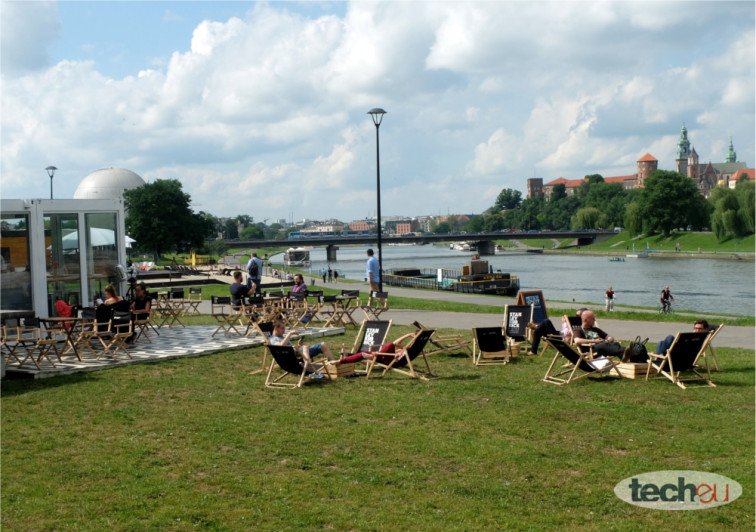
In a talk titled "Building the entrepreneurial ecosystem in Krakow – Can we take things to the next Level?", angel investor and avid supporter of Krakow's startup community Lucas named several key problems that are not so easily "fixable" in the short run. From communism wiping out savings to Poles earning much less compared to British/German/American/Scandinavian counterparts, most of the factors listed implied less capital for startups.
"The other thing is, we need invest in our infrastructure. I don’t want to be critical but the roads in Poland aren’t quite as good as the roads in, say, Germany – we have some ways to go. The parks aren’t quite as tidy," said Lucas. "There’s a huge pool of more important things to invest in than in startups, in Poland. We’re not going to get there quickly and that’s an unfixable problem."
Solving systemic problems take time, but things are definitely beginning to develop.
Since edtech startup Brainly has been a player in the Polish startup scene for the past five years, we asked its CEO, Borkowski, how the community has evolved since the company's founding in 2009.
"Access to funding has changed a lot. When we were starting, there were only a few players that could bring capital and there was no knowledge about international expansion or smart business models. Right now, there are a lot of VC funds and business angels that have valuable experience with different types of businesses. Of course, it's not like in the US, but we're on the right path," he responded.
In terms of VC, there's still a big shortage of funding but two recurring names making an impact in this sphere are Satus Ventures and Innovation Nest.
Additionally, Berlin VC Point Nine Capital is an active investor in Polish startups and has backed Brainly, medical scheduling tool DocPlanner and SEO analytics platform Positionly among others.
As for EU funding for Polish startups, it's a prickly topic. After joining the European Union in 2004, Poland became the main funnel for 7.2 billion euros in EU funds aimed at promoting entrepreneurship and innovation.
Some are worried that the country may become too dependent these funds, while others see it as an easy way out that could propagate a lack of ambition among entrepreneurs.
"Grants are also available from the European Union to help startups. However, in my opinion, the money that really matters is the money that comes from customers, not the money that comes from government grants," Lucas said. "It's a false reality that someone has become an entrepreneur just because they've received a grant from the European Union."
Taking action rather than shouting loudly
There's undoubtedly still a ways to for the Polish startup community, but entrepreneurs, investors and engineers appear to be optimistic and willing to work hard to step it up.
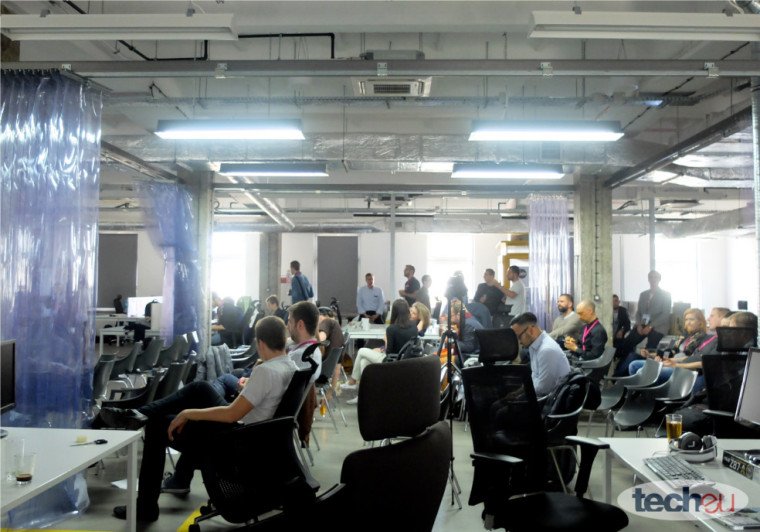
Closing off his talk at the Bitspiration Festival, Lucas highlighted ten things that could be fixable and improve Poland's entrepreneurial landscape.
Topping this list?
Esse quam videre, which is a Latin phrase meaning "To be, rather than to seem (to be)". In other words, actions speak louder than words, he explained.
It's a sentiment mirroring tech.eu's previously mentioned post – particularly, that it's more important to build and support the local startup hub rather than to boast about it.
"It doesn’t matter that there are huge adverts at the airports that say Krakow is awesome," Lucas said. "What really matters is what we do."
Featured image credit: Nahlik / Shutterstock
tech.eu images credit: Charmaine Li


